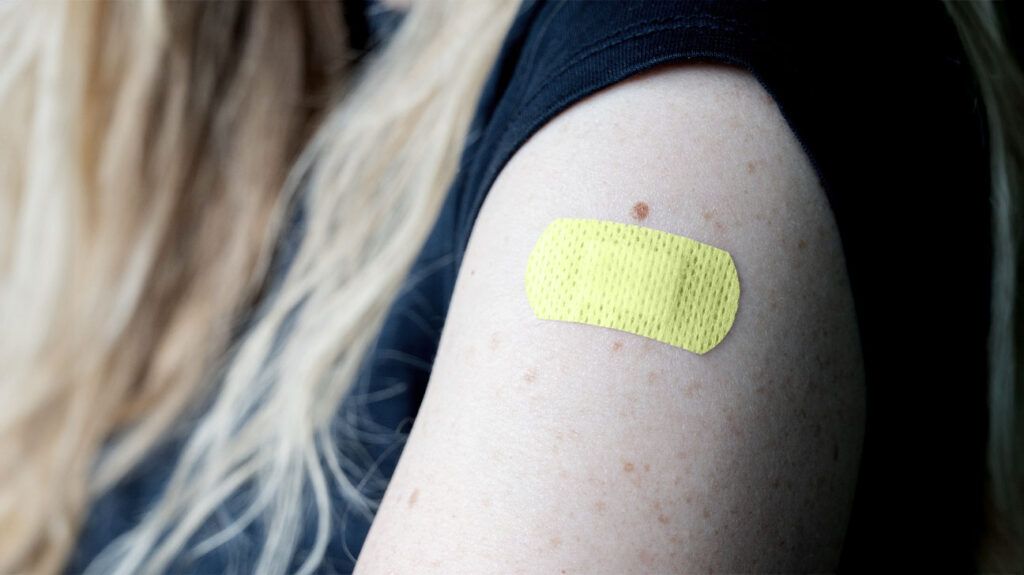Rubella antibodies in the blood mean that a person’s immune system has developed a response to the rubella virus. A positive result for rubella immunoglobulin (IgG) antibodies means a person is immune to the virus.
Rubella, or German measles, is a viral infection
This article examines what it means to have rubella antibodies and why testing is crucial during pregnancy.

A positive result for rubella IgG antibodies
This immunity can be due to either vaccination or a previous infection.
Immunity through vaccination
Most commonly, a positive rubella IgG test indicates that someone has received the rubella vaccine, usually as part of the MMR (measles, mumps, and rubella) vaccine.
The vaccine
Immunity after infection
If someone had a previous rubella infection, their body would have produced IgG antibodies to fight the virus. After they recover, these antibodies remain in the bloodstream,
The usual range for Rubella IgG antibodies can vary depending on the laboratory and the specific testing methods.
However, experts generally interpret the results as
- Positive (immune): This indicates a sufficient level of rubella IgG antibodies in the blood, suggesting immunity to the rubella virus. This could be due to vaccination or a past infection. The specific numerical value for a positive result will depend on the lab’s reference range.
- Negative (nonimmune): The rubella IgG antibody levels are below the threshold for rubella immunity. Experts will typically consider people with negative results susceptible to rubella infection.
- Equivocal or borderline: Sometimes, the test results fall in a gray area and are not clearly positive or negative. In such cases, experts may repeat the test or conduct additional tests.
Doctors commonly perform a rubella test during pregnancy for several
- To check immunity status: The primary reason for testing rubella immunity during pregnancy is to determine whether the pregnant person is immune to the rubella virus. Rubella can be extremely dangerous if contracted during pregnancy, especially in the first trimester. It can lead to severe problems with fetal development, pregnancy loss, or stillbirth.
- To prevent congenital rubella syndrome (CRS): If a person contracts rubella during the first trimester of pregnancy, it can cause CRS in the baby, leading to heart abnormalities, developmental delays, deafness, and other serious health problems. Knowing a person’s immunity status can help healthcare providers take necessary precautions.
- To guide vaccination and precautionary measures: If a pregnant person is nonimmune (rubella IgG negative), doctors may advise them to avoid exposure to the virus during pregnancy and to be vaccinated after delivery to prevent rubella in future pregnancies.
What does it mean when rubella IgG is positive in pregnancy?
When Rubella IgG is positive in pregnancy,
- The pregnant person is immune to rubella: This is a reassuring result, as it indicates that the person has developed immunity to the rubella virus, either through vaccination — most commonly through the MMR vaccine — or through a previous infection.
- Low risk for CRS: Since the pregnant person is immune, there is a minimal risk of developing rubella during pregnancy. This greatly reduces the risk of the fetus developing congenital rubella syndrome.
The next steps following a rubella test depend on the results and a person’s pregnant status.
Positive rubella IgG (immune)
- No further action: This indicates immunity to rubella, either through
previous vaccination or past infection. Generally, no additional rubella-specific action is necessary. - Pregnancy planning: If a person is considering pregnancy, this result is reassuring as it indicates protection against rubella.
- Awareness and prevention: While immune to rubella, if a person is pregnant, they should still be aware of and avoid potential exposure to other infectious diseases, following standard prenatal
health guidelines .
Negative rubella IgG (nonimmune)
- Avoid exposure to rubella: A person should aim to avoid exposure to rubella virus. This includes avoiding contact with individuals known or suspected to have rubella or measles.
- Consider vaccination: Doctors
usually recommend the MMR vaccine if someone is not immune to rubella. This is especially important for people who may become pregnant in the future, as rubella can cause serious complications during pregnancy. However, pregnant people should not receive the vaccine. - Postpartum vaccination: Nonimmune pregnant people
should receive the MMR vaccine after childbirth to help protect against future pregnancies. - Monitoring and follow-up: In some cases, doctors may suggest additional monitoring, especially if there is a suspected exposure to the rubella virus during pregnancy.
- Report symptoms: If the person develops symptoms that suggest rubella,
they should contact a healthcare professional immediately. A pregnant person who has had exposure to someone suspected of having rubella must also seek medical advice immediately.
Equivocal or indeterminate results
- Repeat testing: A person may need a repeat test to clarify the immune status.
- Consultation with a specialist: In some cases, consultation with an infectious disease specialist or a maternal-fetal medicine specialist may provide further evaluation and guidance.
It is important that people, especially those planning to become pregnant, know their rubella immunity status to prevent the risks associated with the disease.
It allows for appropriate preventive measures, thereby safeguarding the health of individual people, their future children, and the broader community.
